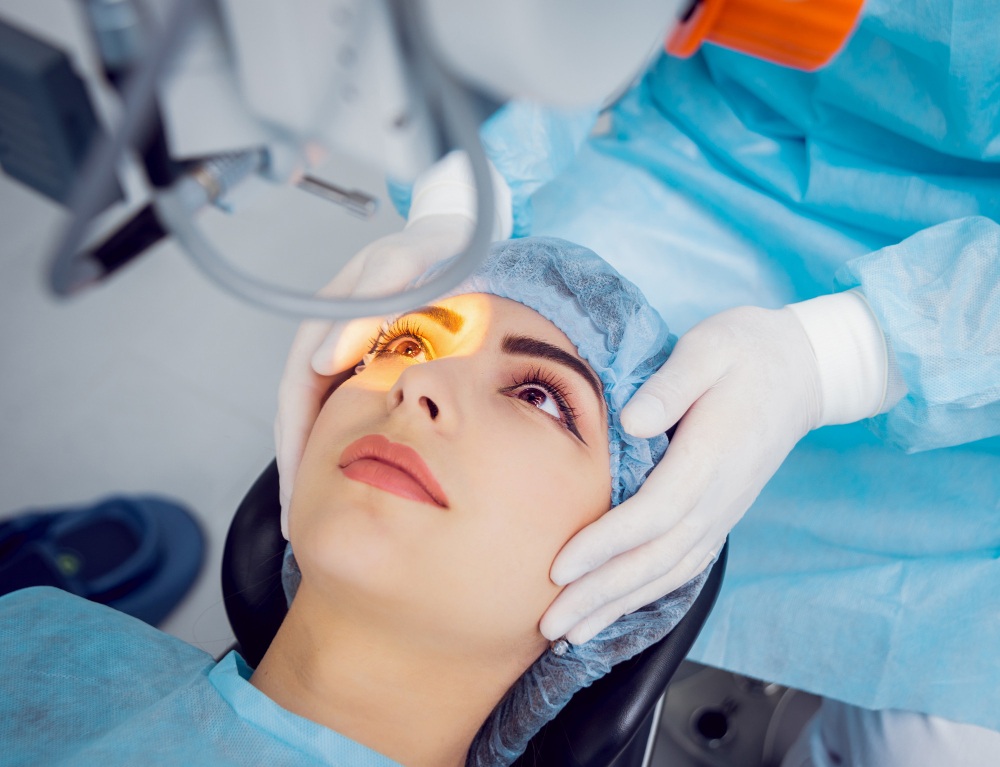
According to a study, 95% of patients suffer from dry eyes immediately after LASIK surgery. For a few of them, symptoms disappear in the initial weeks, but 60% of the patients report this problem even after one month of surgery. These stats show that dry eyes is quite a severe problem that comes after LASIK.
In this condition, your eyes do not produce enough tears, or the quality of tears is poor. As a result, you may experience chronic dryness, which can seriously affect your daily activities. Tasks like driving, reading, or using digital devices may become difficult.
If you have had LASIK surgery or are thinking about it soon, stick to this blog till the end. Here, we will give you a comprehensive overview of everything related to LASIK dry eyes.
What Are the Symptoms of LASIK Dry Eyes?
Let us first see what are some of the common symptoms of dry eyes:
- Red eyes
- Gritty sensation in eyes
- Itching in eyes
- Burning sensation in eyes
- Blurred vision
- Eye strain
- Light sensitivity
- Frequent Blinking
As the healing process progresses, many of these symptoms will fade away on their own. But if any of them worsens, you should contact LASIK eye surgeons.
Why Does LASIK Cause Dry Eyes?

Undergoing LASIK surgery is a significant step toward achieving a clearer vision, but it is essential to be aware of the potential side effects. Let us find out the core reasons for dry eyes after LASIK:
· Nerve Damage
Evidence suggests that nerve damage is one of the major causes of dry eyes. During surgery, doctors create a flap in the cornea and reshape the underlying issue. This can result in a lack of lubrication and even nerve damage.
· Effect On Tears
After LASIK, as the shape of the eye changes, its tear film becomes less stable, producing few tears, which results in dry eyes.
· Post Surgical Inflammation
After surgery, eyes undergo a healing process and become inflamed. This inflammation disturbs the tear glands and leads to dry eyes.
What Is the Duration of Dry Eyes After LASIK?
The duration of dry eyes varies from person to person. On average, most people get rid of it during the first few weeks or months. As the nerves regenerate and the eyes heal, this condition continues to get better.
Some patients take 1-3 months to fully recover from dry eyes after LASIK eye surgery. However, a small portion of people experience chronic symptoms that persist even after six months. These individuals may need special treatments to overcome the condition.
Who Suffers Most from Dry Eye After LASIK
After the eye surgery, you can be at higher risk of dry eyes if:
1. You Are Over 50
Old people are generally more susceptible to dry eyes than young ones. This is because natural tear production starts to reduce in old age.
2. You Are A Woman
Because of different hormonal challenges, women suffer more from this condition as compared to men.
3. You Have A Certain Medical Condition
If you have any autoimmune disease, it can slow the healing process, and your dry eye symptoms will continue for a long time.
4. You Wear Contact Lens Frequently
Frequent contact lens use can change the tear film, making you more prone to dry eyes during your surgery.
5. You Live In a Dry Environment
If you live in an environment with low humidity and high winds, recovering from LASIK will become more challenging.
How to Treat Dry Eyes After LASIK

Now that you are aware of all the causes, signs, and risks of dry eyes, let’s move towards its treatment. From home remedies to medical interventions, there are a lot of strategies to combat dry eyes.
· Home Remedies
Let us start with simple home remedies that relieve and support your eyes during recovery. These remedies are easy to implement and can make a significant difference in managing dry eyes.
- Rest And Proper Sleep: Adequate sleep in a dark and quiet environment will help your eyes recover soon from LASIK’s side effects.
- Humidifier: Place a humidifier in the room where you spend most of the time. By adding moisture into the air, it will prevent excessive evaporation of tears.
- Warm Compress: You can also use a warm compress on your eyes to soothe dryness and improve tear quality.
- Avoid Screen Time: It’s better to avoid TV, phone, and computers for a few days as they can cause eye irritation and make recovery more difficult.
· Medical Treatment
For prolonged symptoms of dry eyes, you should follow special medical treatments. These include:
- Use of Eye Drops: Eye drops contain different amounts of hyaluronic acid and moisten your eyes. They are a very beneficial treatment for dry eyes, but always use them according to your doctor’s prescription.
- Anti-Inflammatory Medicines: To reduce inflammation, doctors recommend you short term use of anti-inflammatory medicines as well. These help you to recover quickly from dry eyes.
- Stimulators For Tear Production: Doctors may prescribe you some drugs to produce more tears and get relief from severe symptoms of dry eyes.
Conclusion
To conclude, dry eyes are very common in the initial days and are nothing to worry about. You can address them by using home remedies and simple medical treatments. However, if the symptoms do not resolve, you should consult a well-reputed eye care center like Texan Eye in Central Texas. They will give you the best treatment for all medical needs related to eye care.
FAQS
You can not prevent it entirely, but you can minimize the risk by following pre-surgical and post-surgery care instructions. Moreover, use the recommended home remedies to maintain good eye health.
Yes, dry eyes can lead to blurred and fluctuating vision. As the symptoms improve, your vision becomes stable.
